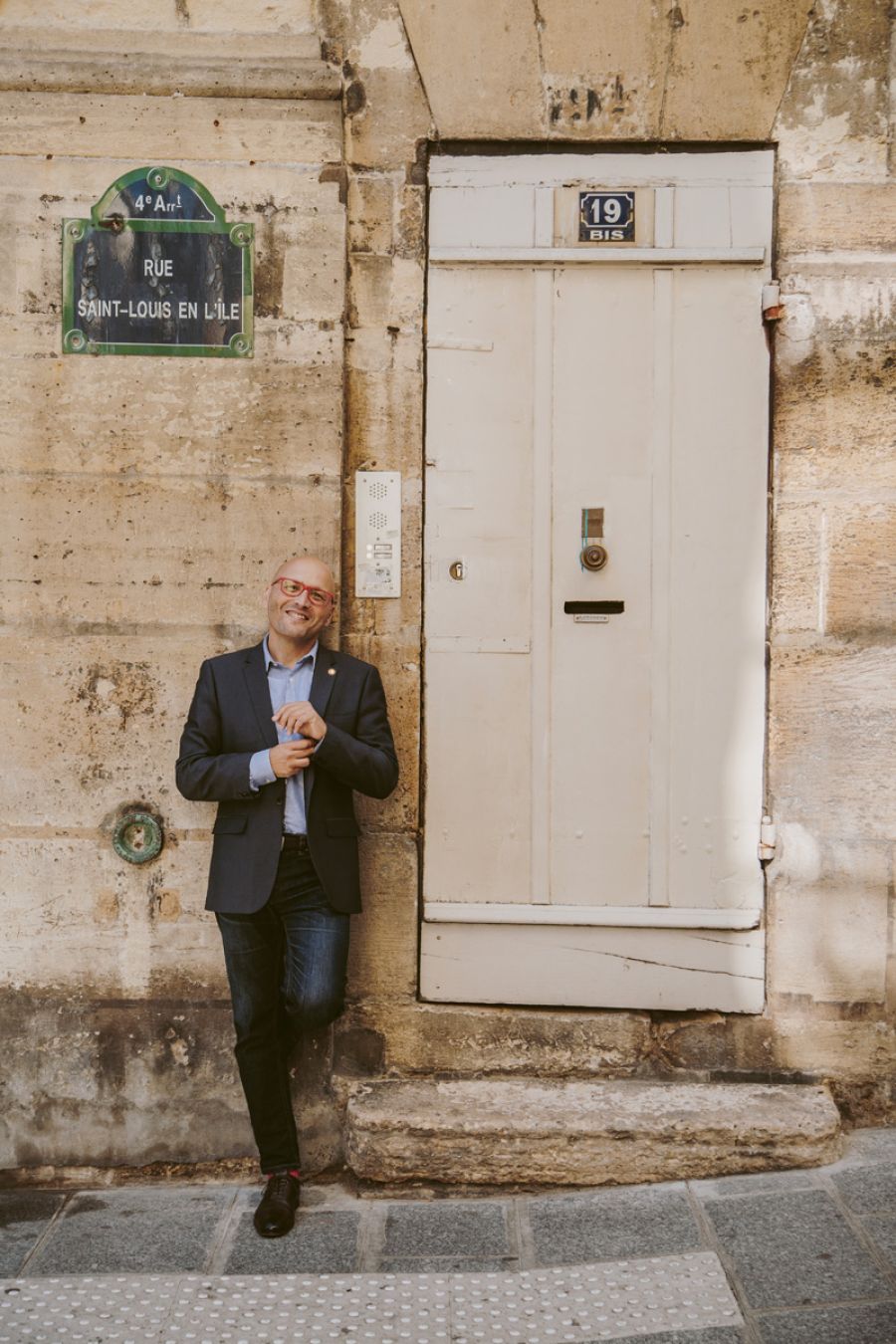Enrique Mazzola - Deutsche Oper Berlin
My place of peace
Enrique Mazzola
He calls Paris home and, in his capacity as the first permanent guest conductor of the Deutsche Oper Berlin, is currently producing Offenbach’s LES CONTES D’HOFFMANN. Enrique Mazzola shows us his favourite haunt: the Île Saint-Louis.
When I feel an urge to unwind I leave the house, stretch my legs, head down past the Place de la Bastille to the Seine. I cross the little Pont de Sully and then I’m there, on the Île Saint-Louis, right at the heart of the city. This was the original nucleus of Paris.
I’m familiar with the Île in all its seasonal aspects. I love the flora and fauna in springtime, with everything coming to life. The best colours are in October, when the light is more delicate and the leaves are on the turn. In winter I love the early evenings on the Île, around seven pm. That’s when the 19th century street lamps go on. The setting is bathed in a warm, dark orange light, and it suddenly reminds me of the backdrop to an opera. As if the world’s best lighting designer has set it all up just for my benefit. At times like these I can feel creation in the air. I sense the great Creator.
I usually walk down to the Island on a Tuesday or Wednesday evening because those are the days we rehearse with my orchestra. It makes sense, too, because the area is quieter mid-week. I walk along the waterfront, savouring the view from the Quai d’Orléans across to the rear of Notre Dame on the Île de la Cité, the other island on the Seine. The Notre Dame area is usually crowded with tourists whereas across the water on the smaller island it’s peaceful, almost quiet, and there’s a softness to the ambiance. I install myself in one of the cafés where you can immerse yourself in a book or a newspaper. I’ve seen well-known French actors sitting there; I’m guessing they, too, appreciate the rarefied atmosphere. I stroll past the little boutiques, past the homey, informal galleries. They all share this same aesthetic, très sophistiqué. The Île Saint-Louis places no demands on me; I can just be. I breathe in the metropolitan atmosphere and can carry it with me on my travels and share it with the world.

I moved to Paris only a few years ago. Before that I lived in Berlin. I still love the German capital. When I’m visiting, I spend a lot of my time in Charlottenburg, not far from the Deutsche Oper Berlin, where I’m conducting LES CONTES D’HOFFMANN, the opera by Jacques Offenbach, who spent much of his life in Paris. The two cities have a lot in common: they’re big, sprawling urban centres and international in outlook and calibre. Obviously there are differences. Paris was never bombed and you can feel the soul of its architecture, the beauty of the 19th century, at every turn. You can turn off Google Maps because, wherever you go, you’re confronted with beauty. Berlin’s beauty lies in its resilience. It was wrecked, maltreated and divided – and it has repaired its soul.
When I arrive in Berlin, I rent a bike and head for the Gendarmenmarkt. The square kind of energises me. I feel this almost spiritual connection with the place. When I walk across it, it exudes this special stillness. The buildings lining the square radiate a particular kind of majesty that I find fascinating. E.T.A Hoffmann, who wrote the literary material on which LES CONTES D’HOFFMANN is based, loved the place and spent a lot of his time there. The square has changed a bit since his time, but who can say that the shade of Hoffmann is not hovering there still. And for me the Gendarmenmarkt has a lot of the Île Saint-Louis about it, because this square is where the city opens like a glade, an island of peace.




